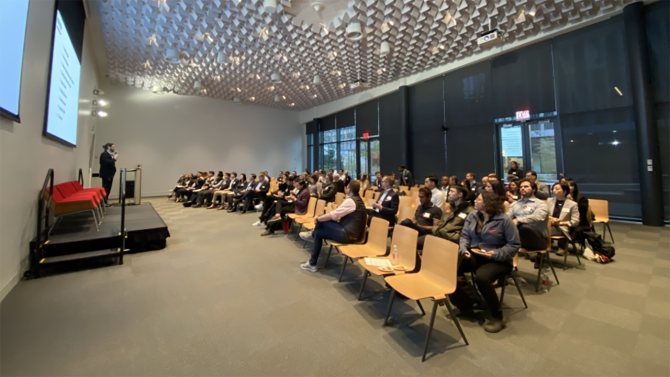University of Southern Queensland funded to pilot plant disease detection program
An innovative University of Southern Queensland project exploring a quick and cost-effective way to combat plant disease has received funding from the Commonwealth Department of Agriculture, Fisheries and Forestry.
Dr Zahra Faraji Rad is leading a team developing microneedles for a diagnostic tool using nanotechnology to rapidly detect high-risk plant pests and pathogens at Australian borders and in-field surveillance field.
The proposed device would act as a field-portable ‘sample-in-result-out’ tool, fast tracking biosecurity detection times.
The project is one of 24 innovation program pilots funded this year through the Department of Agriculture, Fisheries and Forestry’s Biosecurity Innovation Program.
Dr Faraji Rad will kick start the research by developing customised nano-fabricated microneedles to extract plant tissue samples.
“The biosecurity innovation program is bringing my research in microneedles technology together with a separate project looking into nano-biosensors at RMIT University to develop a diagnostic tool for plant disease detection,” Dr Faraji Rad said.
“The end-product diagnostic device itself will use microneedles to extract cell contents from a suspect plant and then immediately scan the samples with biosensors.
“It would allow multiple plant pathogens to be detected instantaneously in the field by generalist biosecurity officers, minimising the need for laboratory-based diagnostic process.”
Department of Agriculture, Fisheries and Forestry Deputy Secretary of Biosecurity and Compliance Dr Chris Locke said once the technology was proven, a handheld prototype would be developed for use by frontline biosecurity officers.
“At the moment our biosecurity officers in the field have to send samples off-site for laboratory testing for high-risk plant pests,” Dr Locke said.
“This diagnostic tool could allow fast and accurate testing in the field, which will speed up biosecurity screening processes and contribute to a sustainable and effective national biosecurity system.”
Microneedles are currently used in the medical field for sample extraction and diagnostics.
Dr Faraji Rad is part of the University of Southern Queensland’s School of Engineering, Centre for Crop Health, and Centre for Future Materials, a world-leading research centre in advanced composite materials and applications.








